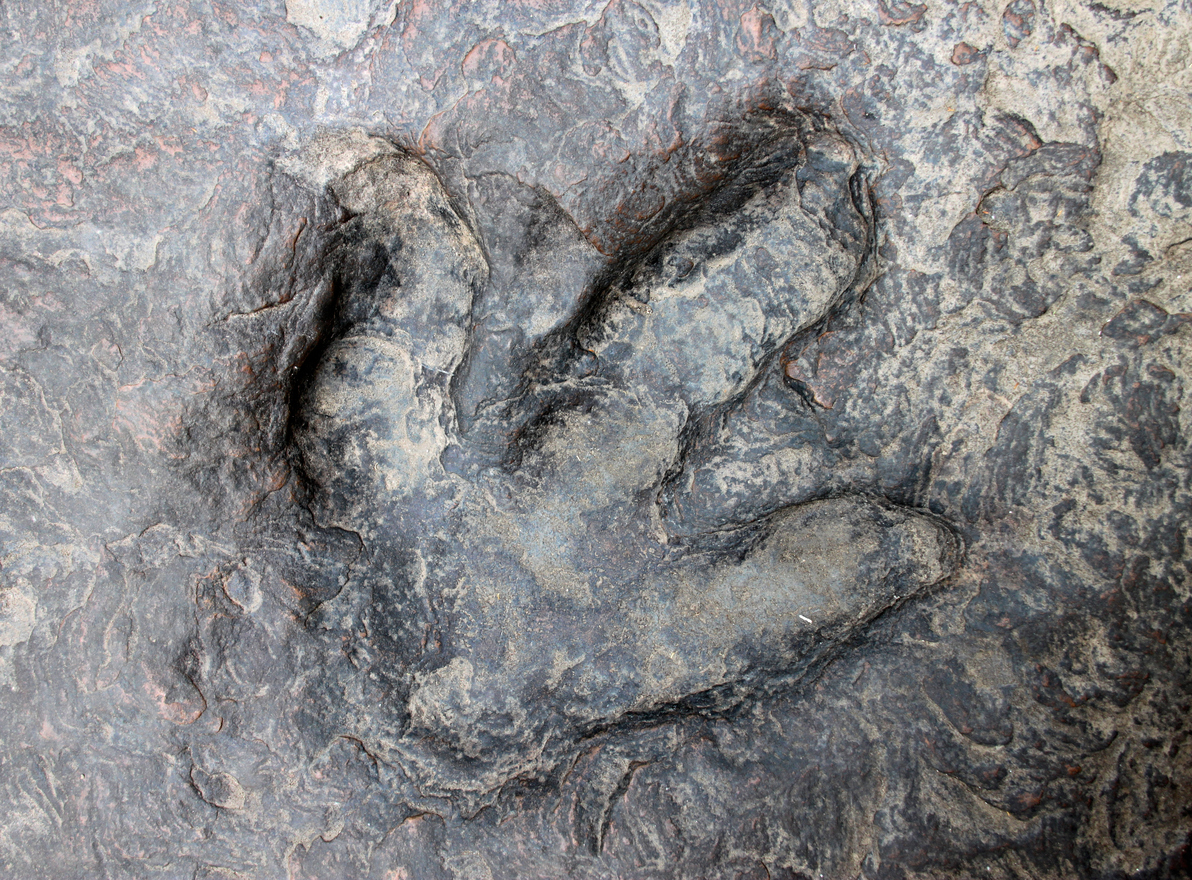Scientists just identified the largest dinosaur foot ever discovered


A free daily email with the biggest news stories of the day – and the best features from TheWeek.com
You are now subscribed
Your newsletter sign-up was successful
Paleontologists unearthed a massive fossil 20 years ago, but they never knew what dinosaur it belonged to until now.
The fossil, excavated in Wyoming, is the biggest dinosaur foot ever discovered. A study published Tuesday in the journal PeerJ finally identified the colossal bones, determining that the foot belonged to a brachiosaur, a type of sauropod dinosaur that lived in the late Jurassic Period.
"This beast was clearly one of the biggest that ever walked in North America," study co-author Emanuel Tschopp told Phys.org. The foot is nearly a meter wide, leading researchers to fondly nickname the specimen "Bigfoot." It was nearly complete, made up of 13 bones, when University of Kansas researchers found the fossil in the Black Hills in 1998. After extensive 3-D scanning and measuring, scientists were able to learn more about the 80-foot dinosaur that left its foot behind 150 million years ago. "It very likely is a type of brachiosaur, the kind that got famous in Jurassic Park (and then got horribly murdered in Fallen Kingdom)," Femke Holwerda, a co-author and paleontologist, told Gizmodo.
The Week
Escape your echo chamber. Get the facts behind the news, plus analysis from multiple perspectives.

Sign up for The Week's Free Newsletters
From our morning news briefing to a weekly Good News Newsletter, get the best of The Week delivered directly to your inbox.
From our morning news briefing to a weekly Good News Newsletter, get the best of The Week delivered directly to your inbox.
But brachiosaurs primarily lived farther south, scientists thought, so finding "Bigfoot" all the way up in Wyoming raises some questions. Now, researchers are wondering whether the finding indicates that brachiosaurs were migratory, or whether the foot belonged to a different species of brachiosaur that lived in a different environment. While this specimen is the biggest foot ever unearthed, scientists say that there are plenty of larger dinosaurs that have yet to have their bones uncovered. "I think we are going to keep breaking the record for 'biggest' over and over for many years to come," said paleontologist Elizabeth Freedman Fowler. Read more at Gizmodo.
A free daily email with the biggest news stories of the day – and the best features from TheWeek.com
Summer Meza has worked at The Week since 2018, serving as a staff writer, a news writer and currently the deputy editor. As a proud news generalist, she edits everything from political punditry and science news to personal finance advice and film reviews. Summer has previously written for Newsweek and the Seattle Post-Intelligencer, covering national politics, transportation and the cannabis industry.
-
 What are the best investments for beginners?
What are the best investments for beginners?The Explainer Stocks and ETFs and bonds, oh my
-
 What to know before filing your own taxes for the first time
What to know before filing your own taxes for the first timethe explainer Tackle this financial milestone with confidence
-
 The biggest box office flops of the 21st century
The biggest box office flops of the 21st centuryin depth Unnecessary remakes and turgid, expensive CGI-fests highlight this list of these most notorious box-office losers
-
 Blue Origin launches Mars probes in NASA debut
Blue Origin launches Mars probes in NASA debutSpeed Read The New Glenn rocket is carrying small twin spacecraft toward Mars as part of NASA’s Escapade mission
-
 Dinosaurs were thriving before asteroid, study finds
Dinosaurs were thriving before asteroid, study findsSpeed Read The dinosaurs would not have gone extinct if not for the asteroid
-
 SpaceX breaks Starship losing streak in 10th test
SpaceX breaks Starship losing streak in 10th testspeed read The Starship rocket's test flight was largely successful, deploying eight dummy satellites during its hour in space
-
 Rabbits with 'horns' sighted across Colorado
Rabbits with 'horns' sighted across Coloradospeed read These creatures are infected with the 'mostly harmless' Shope papilloma virus
-
 Lithium shows promise in Alzheimer's study
Lithium shows promise in Alzheimer's studySpeed Read Potential new treatments could use small amounts of the common metal
-
 Scientists discover cause of massive sea star die-off
Scientists discover cause of massive sea star die-offSpeed Read A bacteria related to cholera has been found responsible for the deaths of more than 5 billion sea stars
-
 'Thriving' ecosystem found 30,000 feet undersea
'Thriving' ecosystem found 30,000 feet underseaSpeed Read Researchers discovered communities of creatures living in frigid, pitch-black waters under high pressure
-
 New York plans first nuclear plant in 36 years
New York plans first nuclear plant in 36 yearsSpeed Read The plant, to be constructed somewhere in upstate New York, will produce enough energy to power a million homes
